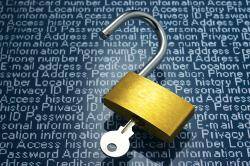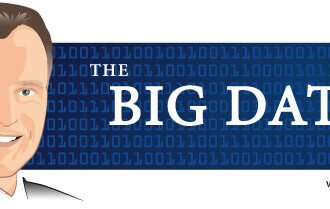Recently, some media outlets reported that Facebook is exploring the development of online support groups for its users suffering from various medical conditions, similar to popular support sites likePatientsLikeMe. This news was met with many negative headlines, such as “Facebook Health?
Recently, some media outlets reported that Facebook is exploring the development of online support groups for its users suffering from various medical conditions, similar to popular support sites likePatientsLikeMe. This news was met with many negative headlines, such as “Facebook Health? Thumbs Down” and “Why You Should Be Wary of Facebook’s Plan to Enter Health Care,” from those worried about how users’ personal information might be used. However, this reaction is misguided—the use of sensitive data to address healthcare needs has a demonstrated history of being effective and necessary, and going forward, researchers and others working on healthcare issues should be encouraged to further embrace the use of sensitive data to save lives.
 Sensitive data is used to improve public health in various ways from fighting HIV/AIDS to responding to the recent Ebola outbreak. To fight HIV/AIDS, public health officials use sensitive geo-location data about patients to analyze factors that contribute to increases in HIV and hinder critical services from being effective on a local level. To address the Ebola crisis, the Centers for Disease Control and Surveillance has partnered with the Ministry of Health and telecom companies in Liberia to analyze cell tower data to detect outbreaks faster. This analysis can help provide health officials with information needed to contain infections and save lives.
Sensitive data is used to improve public health in various ways from fighting HIV/AIDS to responding to the recent Ebola outbreak. To fight HIV/AIDS, public health officials use sensitive geo-location data about patients to analyze factors that contribute to increases in HIV and hinder critical services from being effective on a local level. To address the Ebola crisis, the Centers for Disease Control and Surveillance has partnered with the Ministry of Health and telecom companies in Liberia to analyze cell tower data to detect outbreaks faster. This analysis can help provide health officials with information needed to contain infections and save lives.
Sensitive data is also providing valuable insights for healthcare providers on how to better treat patients. The Carolinas HealthCare System, which runs more than 900 care centers, has been analyzing consumer spending data on 2 million people to identify high-risk patients, enabling doctors to intervene before they get sick. The goal of the program is to develop a better understanding of public health and create predictive models for proactive care management. For example, analyzing consumer spending data can reveal if patients have stopped filling their prescriptions and prompt a call from their doctor to remind them. When poor medication adherence leads to 125,000 Americans deaths and an added $100 billion in healthcare costs every year, this type of insight has the potential to save many lives and reduce healthcare costs. Already, these efforts are showing results—after integrating sensitive patient data tied to agencies licensed to provide medical services at home, Carolinas HealthCare hospitalizations fell by six percent in less than a year.
Maintaining the privacy of these sensitive datasets is critical. In some communities, revealing information about homosexuality, intravenous drug use, or sex work could result in violence or criminal charges. In countries where basic medical knowledge is lacking, identifying and tracking the location of Ebola patients could have similar unintended consequences and stigmatizing effects. These concerns are legitimate and should be addressed, but the fear of taking advantage of available data comes at a tremendous price. As Google’s Larry Page has noted “We get so worried about these things that we don’t get the benefits… Right now we don’t data-mine healthcare data. If we did we’d probably save 100,000 lives next year.” Rather than write off the use of sensitive data, a better approach is to have stakeholders work together to decide how to use this data respectfully, transparently, and with the most positive impact.
Better use of sensitive data offers an important opportunity to improve the effectiveness and efficiency of healthcare for everyone. As new methods and technologies become available to record and analyze this data, organizations should not ignore the potential positive impact of using sensitive data. Instead, they should focus on using the data they collect to improve and save lives. The human cost of ignoring these opportunities is simply too great.
unlocking sensitive data / shutterstock







